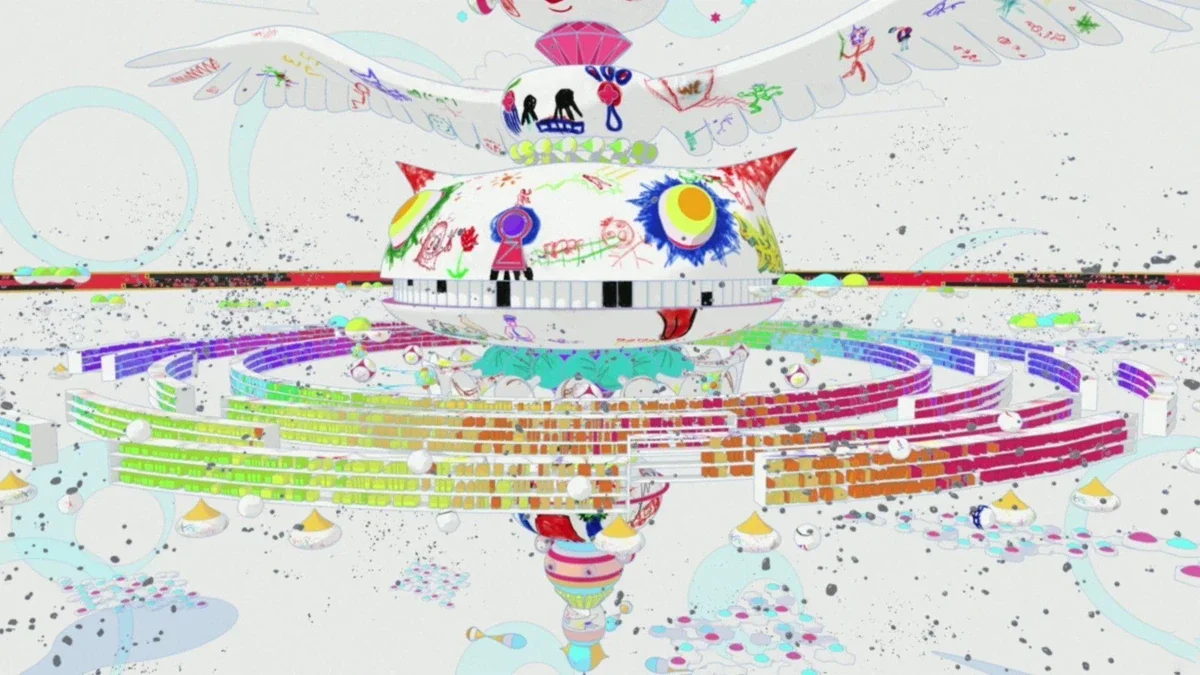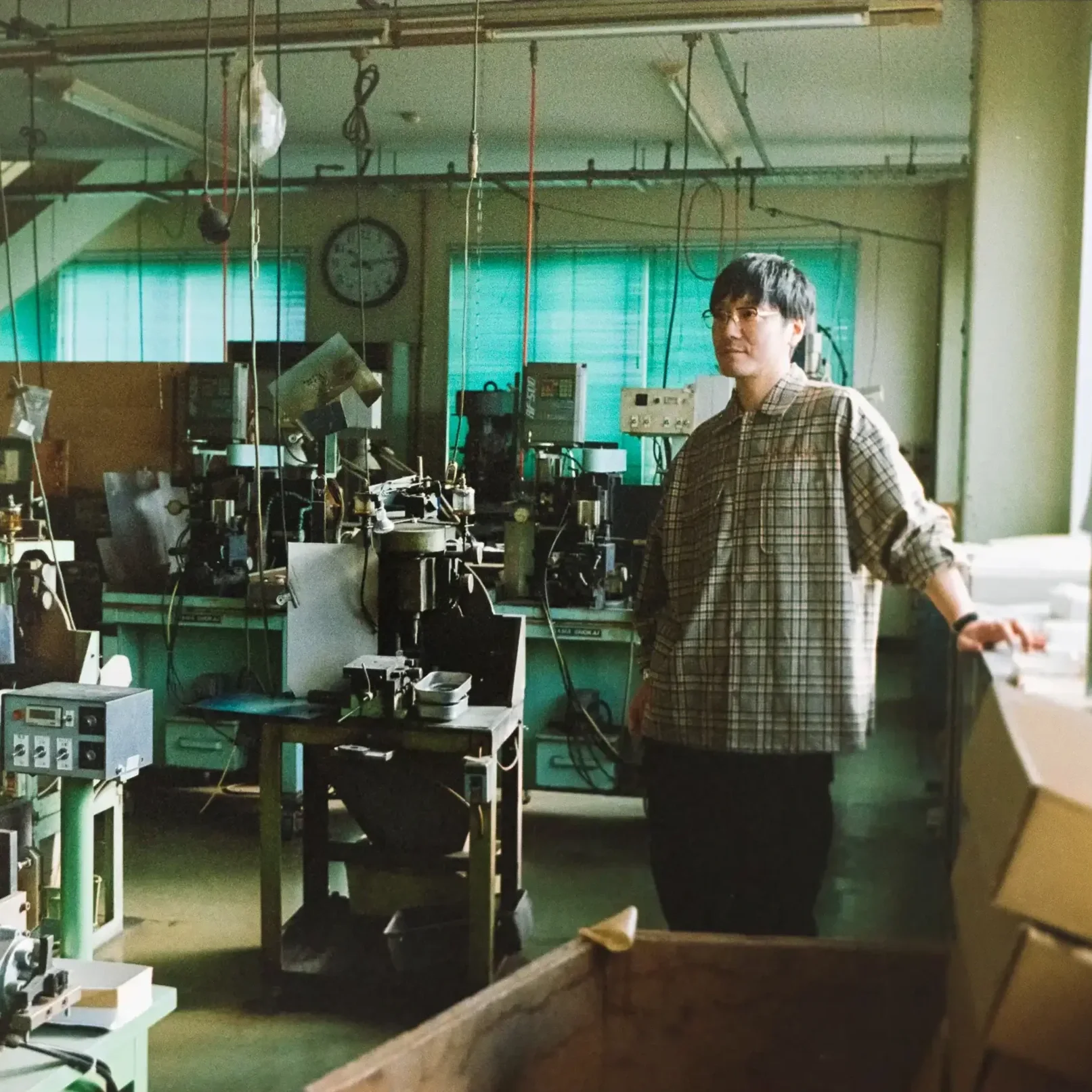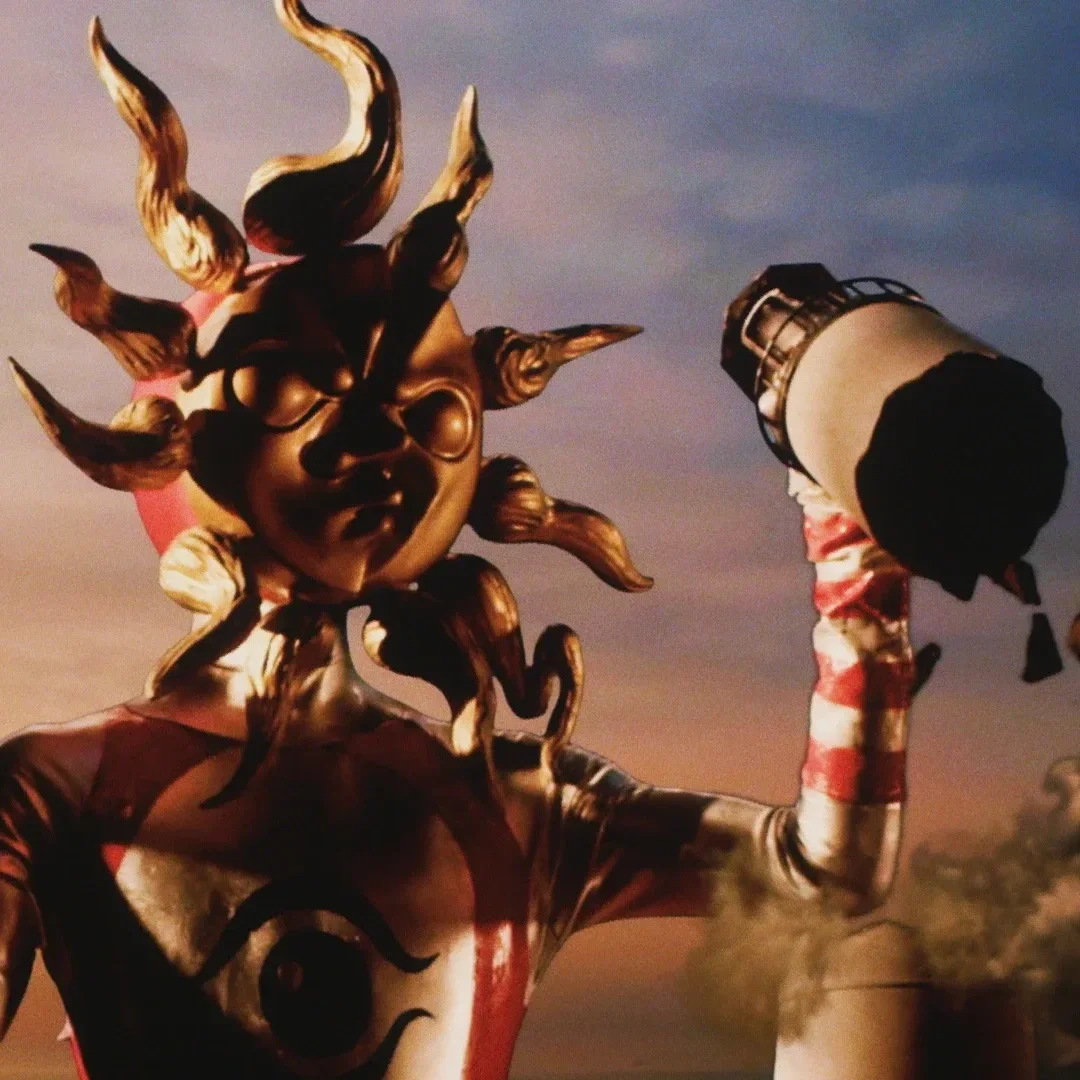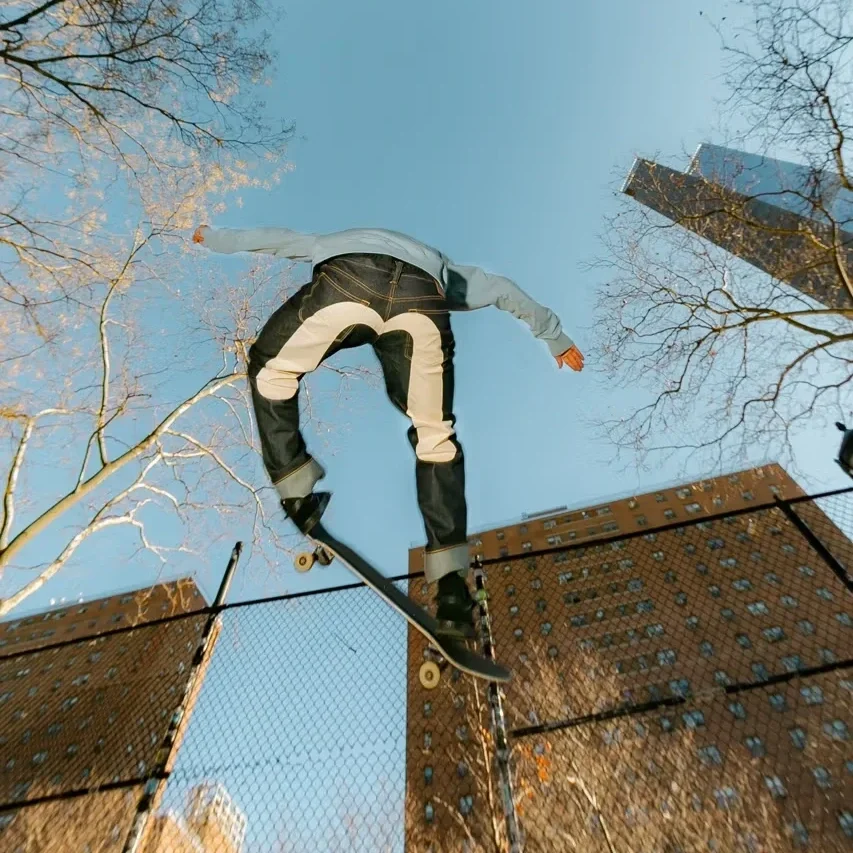Summer Wars – The Foreshadowing of an AI Society
Summer Wars│© Warner Bros. Pictures
This article may contain spoilers
In 2025, AI headlines dominate our feeds and virtual platforms increasingly shape our lives. Yet back in 2009, Japanese director and animator Mamoru Hosoda released Summer Wars, a film that eerily foreshadowed this moment. Summer Wars was Hosoda’s first original feature, a critical and commercial success that grossed $18 million worldwide.
Today tech autocrats like Mark Zuckerberg drive conversations around virtual reality and digital identity. His metaverse project helped normalize the idea of living our lives online. Watching Summer Wars now feels less like speculative fiction and more like a mirror reflecting where we are headed.
Summer Wars’ Premise
Summer Wars takes place in a hyper-connected society where daily life depends on a massive virtual platform called OZ. When a shy high-schooler named Kenji accidentally cracks OZ’s security system, a rogue AI called Love Machine throws both the real and digital worlds into chaos. Kenji is traveling with his friend Natsuki to pose as her boyfriend at her grandmother’s 90th birthday celebration, and while he struggles to fit in with her large multigenerational family, he suddenly finds himself drawn into a battle against an autonomous AI.
Although Hosoda would later explore AI and virtual worlds more deeply in his 2021 film Belle, Summer Wars remains a landmark anime for how it fused new themes of technology with a deeply human story.
The World of OZ and Our Digital Reality
At the heart of the film is OZ, a dazzling, universal platform that resembles a cross between social media, PayPal and a national ID system. People bank, pay taxes, attend meetings, and play games through OZ. Avatars stand in for real identities, and the convenience is irresistible. That premise now feels familiar.
Hosoda explores the question; is our privacy and overreliance on digital services worth the convenience? Mark Zuckerberg’s passion project of creating a metaverse draws parallels closely to the world of OZ in Summer Wars. Described as the “future of connection” on their official website, his idea is to create a virtual world where users can create their own avatars and live through them, completing daily tasks like work meetings and hanging out with friends fully virtually. The immersion of VR and AR in this project is a key aspect that pushed for Meta’s release of VR headsets and AR glasses. Along with these innovations, AI has been in primary focus and has been invested in by the world’s largest companies.
Outside of Silicon Valley, even universities are employing AI models to help college students in Generation Z develop their communication skills. Bodyswaps is one of the platforms creating a shift in how to fix social deficiency caused by the pandemic. In another facet of life, multiplayer games are slowly merging into virtual world games. There are already tons of virtual world games where players can meet others presenting themselves as a character or even their own avatar, with unlimited customization. Roblox was sued recently for allowing sexual exploitation and contributing to the suicide of a 15-year-old child. Many issues such as child grooming and other questionable activity taking place in their servers, are currently being raised.
Summer Wars│© Warner Bros. Pictures
The Aversion to AI
With a set of sunken eyes, a tall and muscular frame, and an elaborately designed crown, Love Machine causes havoc in the world of OZ and subsequently, in real life. The rogue AI is coded to be destructive and sadistic, showing close to nil remorse for his actions. It was created to be a hacking program for the United States Government and was released into OZ as an experiment. In one scene, Love Machine even tries to crash an orbiting satellite into a nuclear power plant by hacking its system. This program was secretly created by Wabisuke Jinnouchi, the estranged genius of the Jinnouchi family who sold his code to the U.S. government.
The unthinkable horrors happening in the movie are already happening all over the world. Almost like a warning, the string of events in the movie demonstrate the dysfunction in society as a result of their overdependence on automated systems. Even Wabisuke feels the helplessness of the situation, despite being the one who created the AI system.
Since the beginning of the AI bubble, many have spoken out against AI and its effects on content and human behavior. We already see ransomware shutting down hospitals, AI chatbots promoting harmful content and surveillance systems eroding privacy. Hosoda dramatizes a fear that’s now mainstream: society’s overdependence on automated systems can leave us powerless to control crises we helped create.
Humanity as a Safeguard
More now than ever, “humanness” is an admired quality; everyone is focused on what makes them human. In Summer Wars, we see this theme explored with Kenji, the protagonist, tasked with becoming Natsuki’s fake boyfriend and assimilating to her traditional, large family. Despite being an outsider, the family’s teamwork becomes the key to defeating Love Machine. With cooperation, empathy and trust, Kenji and Natsuki’s family became one.
At the heart of this family stands Sakae Jinnouchi, the elderly matriarch whose wisdom and vast social network allow the family to mobilize against Love Machine. Even after her passing, her influence drives them to cooperate and reclaim OZ. She represents the moral anchor of the story, embodying Hosoda’s belief that the strength of family and friendships is what ultimately counter technological chaos.
Emotional intelligence, creativity and ethical judgment, the very things machines cannot replicate, are highly valued. In Summer Wars, the family’s traditional rituals and face-to-face relationships stand in sharp contrast to the cold algorithms consuming OZ. This theme appears throughout Hosoda’s career. In Digimon: Our War Game!, a film he directed in 2000, children must stop a virus-infected monster on the internet. He has been grappling with networked worlds, digital identities and AI risks long before these ideas reached mainstream policy debates.
Mamoru Hosoda does not reject digital life. He imagines virtual worlds as places where marginalized people can escape real-world barriers and find new hope. But Summer Wars is also a cautionary tale about unchecked dependence on a single platform and the dangers of powerful, unaccountable AI. Rewatching the film today is like opening a time capsule of our current anxieties. Hosoda was already exploring how technology might change us, and reminding us that what keeps society from total demise is not code, but community.








Step into nostalgia with Super Kaylo’s enchanting 1-bit demakes.